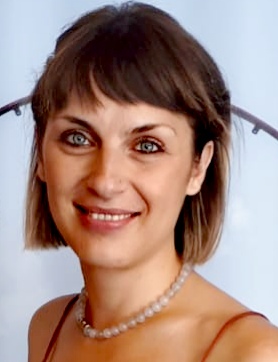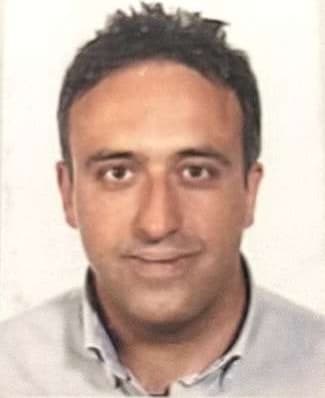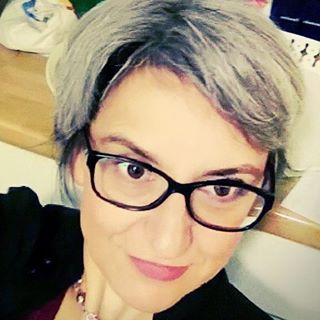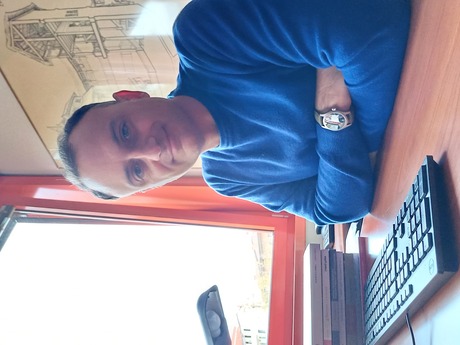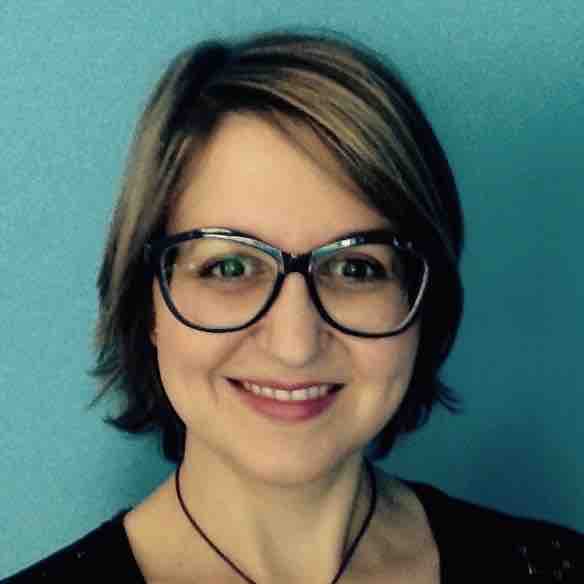Studiare
In questa sezione è possibile reperire le informazioni riguardanti l'organizzazione pratica del corso, lo svolgimento delle attività didattiche, le opportunità formative e i contatti utili durante tutto il percorso di studi, fino al conseguimento del titolo finale.
Calendario accademico
Il calendario accademico riporta le scadenze, gli adempimenti e i periodi rilevanti per la componente studentesca, personale docente e personale dell'Università. Sono inoltre indicate le festività e le chiusure ufficiali dell'Ateneo.
L’anno accademico inizia il 1° ottobre e termina il 30 settembre dell'anno successivo.
Calendario didattico
Il calendario didattico indica i periodi di svolgimento delle attività formative, di sessioni d'esami, di laurea e di chiusura per le festività.
| Periodo | Dal | Al |
|---|---|---|
| I semestre (Lingue e letterature straniere) | 28-set-2020 | 9-gen-2021 |
| II semestre (Lingue e letterature straniere) | 15-feb-2021 | 29-mag-2021 |
| Sessione | Dal | Al |
|---|---|---|
| ESAMI LINGUE - sessione invernale | 11-gen-2021 | 13-feb-2021 |
| ESAMI LINGUE - sessione estiva | 31-mag-2021 | 24-lug-2021 |
| ESAMI LINGUE - sessione autunnale | 30-ago-2021 | 25-set-2021 |
| Sessione | Dal | Al |
|---|---|---|
| LAUREE LINGUE - sessione autunnale (a.a. 2019/20) | 2-nov-2020 | 7-nov-2020 |
| LAUREE LINGUE - sessione straordinaria (a.a. 2019/20) | 7-apr-2021 | 13-apr-2021 |
| LAUREE LINGUE - sessione estiva (a.a. 2020/21) | 5-lug-2021 | 10-lug-2021 |
| Periodo | Dal | Al |
|---|---|---|
| Festa di Ognissanti | 1-nov-2020 | 1-nov-2020 |
| Festa dell'Immacolata | 8-dic-2020 | 8-dic-2020 |
| Festa della liberazione | 25-apr-2021 | 25-apr-2021 |
| Festa del lavoro | 1-mag-2021 | 1-mag-2021 |
| Festa del Santo Patrono | 21-mag-2021 | 21-mag-2021 |
| Festa della Repubblica | 2-giu-2021 | 2-giu-2021 |
Calendario esami
Gli appelli d'esame sono gestiti dalla Unità Operativa Segreteria Corsi di Studio Lingue e letterature straniere.
Per consultazione e iscrizione agli appelli d'esame visita il sistema ESSE3.
Per problemi inerenti allo smarrimento della password di accesso ai servizi on-line si prega di rivolgersi al supporto informatico della Scuola o al servizio recupero credenziali
Per dubbi o domande leggi le risposte alle domande più frequenti F.A.Q. Iscrizione Esami
Docenti
 silvia.baroni@univr.it
silvia.baroni@univr.it
 michele.marchesi@univr.it
michele.marchesi@univr.it
 stella.merlin@univr.it
stella.merlin@univr.it
 sara.paolini@univr.it
sara.paolini@univr.it
Piano Didattico
Il piano didattico è l'elenco degli insegnamenti e delle altre attività formative che devono essere sostenute nel corso della propria carriera universitaria.
Selezionare il piano didattico in base all'anno accademico di iscrizione.
1° Anno
| Insegnamenti | Crediti | TAF | SSD |
|---|
1a lingua straniera2a lingua straniera1a letteratura straniera2a letteratura stranieraUn insegnamento a sceltaLetteratura italiana
2° Anno Attivato nell'A.A. 2021/2022
| Insegnamenti | Crediti | TAF | SSD |
|---|
1a lingua straniera2a lingua straniera1a letteratura straniera2a letteratura straniera3° Anno Attivato nell'A.A. 2022/2023
| Insegnamenti | Crediti | TAF | SSD |
|---|
1a lingua straniera2a lingua straniera1a letteratura straniera2a letteratura stranieraUn insegnamento a scelta (la filologia deve essere inerente la 1a o 2a lingua scelta)Un insegnamento a scelta | Insegnamenti | Crediti | TAF | SSD |
|---|
1a lingua straniera2a lingua straniera1a letteratura straniera2a letteratura stranieraUn insegnamento a sceltaLetteratura italiana
| Insegnamenti | Crediti | TAF | SSD |
|---|
1a lingua straniera2a lingua straniera1a letteratura straniera2a letteratura straniera| Insegnamenti | Crediti | TAF | SSD |
|---|
1a lingua straniera2a lingua straniera1a letteratura straniera2a letteratura stranieraUn insegnamento a scelta (la filologia deve essere inerente la 1a o 2a lingua scelta)Un insegnamento a scelta | Insegnamenti | Crediti | TAF | SSD |
|---|
Legenda | Tipo Attività Formativa (TAF)
TAF (Tipologia Attività Formativa) Tutti gli insegnamenti e le attività sono classificate in diversi tipi di attività formativa, indicati da una lettera.
Teoria e pratica della traduzione (2022/2023)
Codice insegnamento
4S002961
Docente
Crediti
6
Lingua di erogazione
Italiano
Settore Scientifico Disciplinare (SSD)
L-LIN/02 - DIDATTICA DELLE LINGUE MODERNE
Periodo
II semestre (Lingue e letterature straniere) dal 13-feb-2023 al 27-mag-2023.
Obiettivi di apprendimento
Al termine del corso gli studenti saranno in grado di:
- conoscere i principi fondamentali della teoria della traduzione (metodi, critica, descrizione vs. normatività ecc.) e, in chiave storica, le principali teorie della traduzione, con particolare attenzione all’Italia del Novecento;
- analizzare e comparare diverse traduzioni interlinguistiche di uno stesso testo-fonte utilizzando un lessico e un registro specifici;
- sviluppare giudizi critici relativamente alle modalità con cui operano concretamente le diverse teorie traduttive messe in atto da alcuni autorevoli traduttori.
Prerequisiti e nozioni di base
Buona padronanza (preferibilmente, livello B2 o superiore) di almeno una delle lingue di studio e dell'italiano. Conoscenze di base di linguistica generale.
Programma
Il corso presenterà le nozioni fondamentali riguardanti gli studi sulla traduzione e le pratiche traduttive, coniugando la dimensione teorica con quella applicativa.
In particolare, l’insegnamento illustrerà, da un lato, il dibattito teorico all’interno degli studi traduttologici, presentando e discutendo i principali approcci alla traduzione; dall’altro, avvierà gli studenti alla dimensione più pratica della traduzione, approfondendo, da una prospettiva specificamente linguistica, le principali problematiche poste dalla traduzione.
Particolare attenzione sarà dedicata ad aspetti linguistici di rilievo per la traduzione (come, ad esempio, l'organizzazione frastica e le costruzioni con ordini marcati dei costituenti di frase, le collocazioni, le espressioni idiomatiche). Verrà inoltre proposta una riflessione sulle pratiche di traduzione in base ai diversi tipi testuali e alle diverse dimensioni di variazione sociolinguistica (diatopica, diastratica, diafasica e diamesica). Infine si forniranno alcuni cenni alle caratteristiche della specifica varietà del cosiddetto ‘traduttese’, ovvero dell’italiano usato nelle traduzioni.
Bibliografia
Modalità didattiche
Lezioni frontali, commento e discussione di esempi pratici, lavoro in piccoli gruppi.
Il programma è lo stesso per frequentanti e non frequentanti. Tutti gli studenti, frequentanti e non frequentanti, sono invitati a iscriversi alla pagina Moodle dell'insegnamento, sulla quale saranno pubblicati i materiali delle lezioni, nonché gli avvisi relativi al corso.
Modalità di verifica dell'apprendimento
L’esame consisterà in una prova scritta e comprenderà domande a risposta aperta e chiusa ed esercizi pratici. I quesiti verteranno su tutti gli argomenti del programma, sia quelli discussi in aula durante le lezioni, sia quelli preparati in maniera autonoma dagli studenti sui testi indicati.
Più specificamente, la prova mira a:
• verificare la conoscenza delle nozioni teoriche di base, accertata prevalentemente tramite domande aperte e chiuse di natura teorica;
• valutare la capacità dello studente di applicare le conoscenze teoriche apprese durante il corso all’analisi di testi fonte e testi di arrivo, attraverso domande aperte a carattere pratico;
• verificare lo sviluppo della capacità di ragionamento critico, accertato tramite domande aperte in cui
gli studenti dimostreranno di saper riconoscere e riflettere sulle principali problematiche poste dalla
traduzione.
Criteri di valutazione
I criteri in base ai quali vengono valutate le prove sono:
• correttezza sostanziale delle risposte ed esaustività dei contenuti;
• possesso di adeguate capacità di analisi;
• chiarezza espressiva e conoscenza del linguaggio specifico della disciplina.
Lingua dell'esame
Italiano
Tipologia di Attività formativa D e F
Per scoprire tutte le attività didattiche accreditate dal Collegio didattico clicca qui
Prospettive
Avvisi degli insegnamenti e del corso di studio
Per la comunità studentesca
Se sei già iscritta/o a un corso di studio, puoi consultare tutti gli avvisi relativi al tuo corso di studi nella tua area riservata MyUnivr.
In questo portale potrai visualizzare informazioni, risorse e servizi utili che riguardano la tua carriera universitaria (libretto online, gestione della carriera Esse3, corsi e-learning, email istituzionale, modulistica di segreteria, procedure amministrative, ecc.).
Entra in MyUnivr con le tue credenziali GIA: solo così potrai ricevere notifica di tutti gli avvisi dei tuoi docenti e della tua segreteria via mail e a breve anche tramite l'app Univr.
Area riservata studenti
Gestione carriere
Assegnazione tutore
Attività accreditate D/F
Calendario didattico dettagliato
Cambio lingua curriculare
Competenze informatiche
Competenze linguistiche (prima e seconda lingua)
Competenze linguistiche in triennale (terza lingua CFU F)
Compilazione del piano didattico
Corso di Lingua portoghese
Erasmus+ e altre esperienze all'estero
Esercitazioni Linguistiche CLA
Presentazione dei corsi di studio e Open day
Prova finale
La prova finale, a cui vengono attribuiti 6 CFU consiste nella preparazione e discussione di un elaborato scritto su materia di uno degli insegnamenti in cui siano stati acquisiti almeno 6 CFU.
La discussione dell'elaborato scritto avviene in presenza di una Commissione Istruttoria composta da due docenti dell'Ateneo che si riunisce nei giorni precedenti la proclamazione e che propone alla Commissione di Laurea (composta da almeno tre docenti) una valutazione. Alla prova finale potranno essere attribuiti non più di 5 punti su 110. L'attribuzione della lode avviene o su proposta del relatore, se l'elaborato è ottimo e la media dei voti conseguiti negli esami dallo Studente raggiunge almeno 110 punti, o in maniera automatica se la media raggiunge almeno 113 punti.
Il voto di laurea è formato da:
a) la media aritmetica dei voti conseguiti negli esami, rapportata a 110,
b) la valutazione dell'elaborato finale,
c) punti supplementari di incentivazione:
-
un massimo di 2 punti per le lodi (1 punto per due lodi, 2 punti per più lodi).
-
2 punti per la partecipazione al Programma Erasmus o assimilato, a condizione che lo studente: abbia acquisito almeno 12 CFU per un semestre di mobilità nel corso del ciclo di studi (24 CFU per due semestri di mobilità) e consegua il titolo finale entro la durata normale del corso di studi.
-
1 punto per la partecipazione al Programma Erasmus o assimilato, a condizione che lo studente: abbia acquisito almeno 12 CFU per un semestre di mobilità nel corso del ciclo di studi (24 CFU per due semestri di mobilità) e consegua il titolo finale anche oltre la durata normale del corso di studi.
-
Lo studente vincitore del bando del Ministero dell’Università per assistente di lingua italiana all’estero o di borsa Comenius presso scuole di 1° e 2° grado dell’Unione Europea otterrà un punteggio supplementare, che sarà aggiunto alla media finale del voto di laurea: 1 punto, per una esperienza di assistentato fino a 6 mesi; 2 punti, per una esperienza di assistentato superiore a 6 mesi.
Non possono essere attribuiti punti di incentivazione per qualsiasi esperienza all’estero svolta dallo studente su iniziativa privata, anche se riconosciuta come equipollente dal Dipartimento/Collegio Didattico.
-
2 punti per la conclusione degli studi in corso (solo per gli studenti di prima immatricolazione, senza il riconoscimento della carriera pregressa o sospensione di carriera).
Adempimenti amministrativi, scadenze domanda di laurea, calendari delle discussioni elaborato finale e proclamazioni di laurea al seguente link Sessioni di laurea
Saperi minimi
Stage e tirocini
Le attività di stage sono finalizzate a far acquisire allo studente una conoscenza diretta in settori di particolare interesse per l’inserimento nel mondo del lavoro e per l’acquisizione di abilità professionali specifiche.
Le attività di stage sono svolte sotto la diretta responsabilità di un singolo docente presso studi professionali, enti della pubblica amministrazione, aziende accreditate dall’Ateneo veronese.
I crediti maturati in seguito ad attività di stage saranno attribuiti secondo quanto disposto nel dettaglio dal “Regolamento d’Ateneo per il riconoscimento dei crediti maturati negli stage universitari” vigente.
- Tutte le informazioni in merito agli stage per futuri studenti sono disponibili alla pagina Stage e tirocini.
- Tutte le informazioni in merito agli stage per studenti iscritti sono pubblicate in MyUnivr - come fare per - stage e tirocini.
- Tutte le informazioni in merito agli stage per le aziende sono disponili alla pagina Stage e tirocini per azienze.
Ulteriori informazioni al seguente link https://www.univr.it/it/i-nostri-servizi/gestione-carriere-studenti-lingue-e-letterature-straniere/stage-e-tirocini-lingue-e-letterature-straniere

 +39 045802 8409
+39 045802 8409
